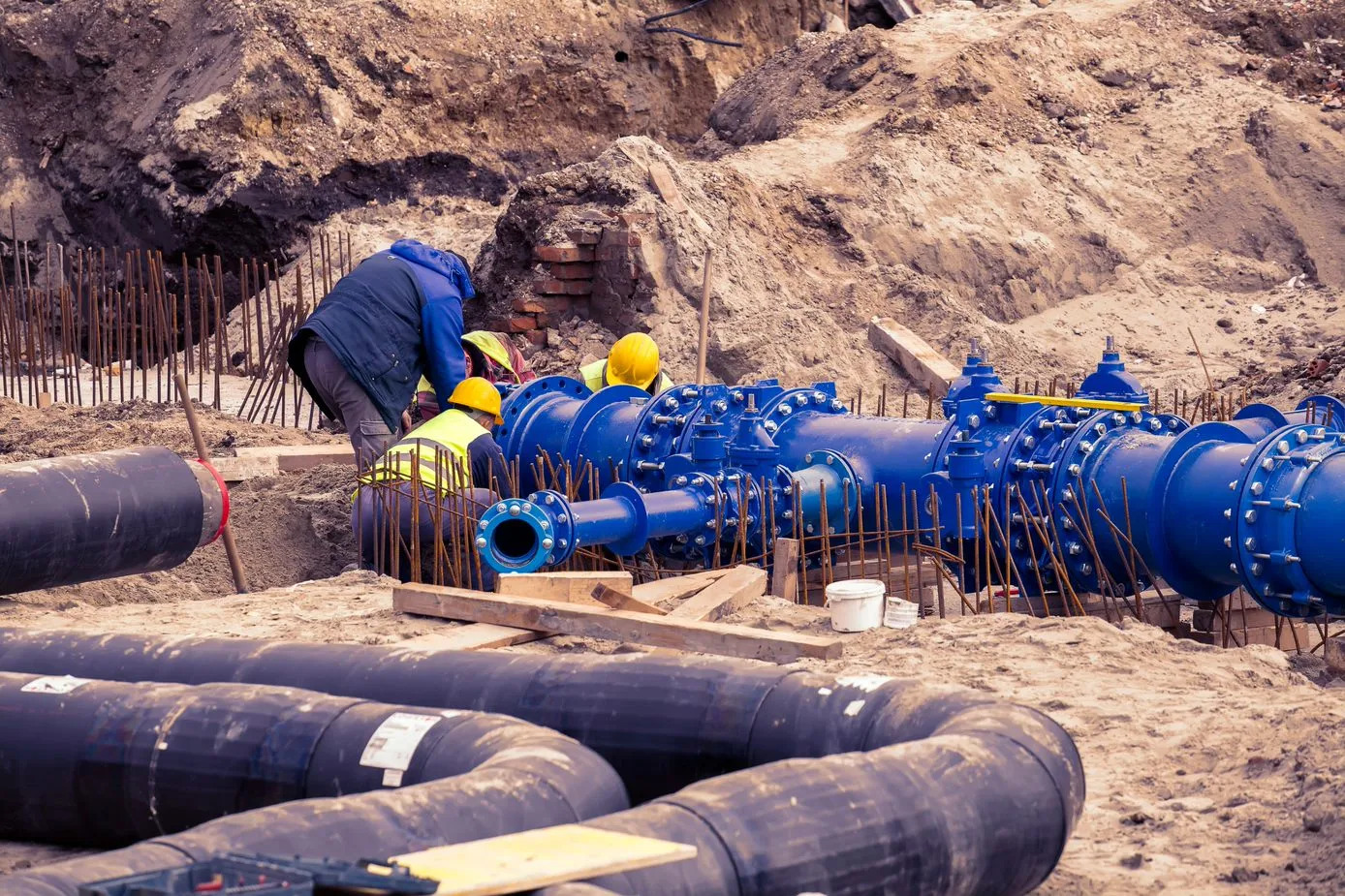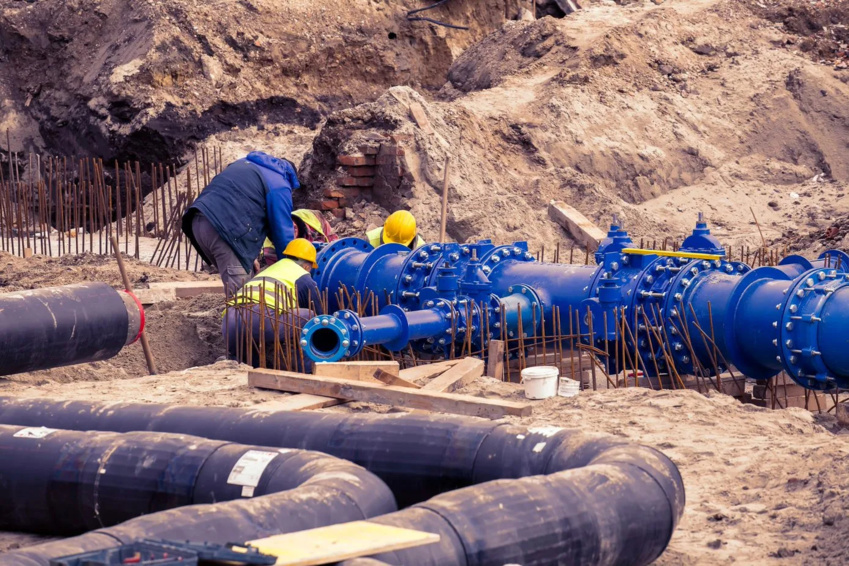The recently published Black & Veatch 2023 Water Report reveals the evolving challenges and opportunities faced by the U.S. water sector. These include issues like aging infrastructure, regulatory changes, and climate pressures, as well as the potential benefits of data utilization and increased federal funding.
The report, based on an analysis of survey responses from approximately 450 stakeholders in the water industry, highlights the sector's ongoing struggle with aging water and sewer systems as a primary concern. Additionally, the industry faces challenges related to an aging workforce and the recruitment of qualified staff. Financial matters, such as justifying capital improvement programs, meeting rate requirements, and managing costs, are also significant concerns.
Regulatory mandates are another top consideration. Resilience and sustainability emerge as dominant themes, with two-thirds of respondents emphasizing the importance of sustainability in serving both present and future generations. The survey demonstrates promising indications of the industry's ongoing digital transformation, which is crucial for enhancing resilience, sustainability, and decision-making processes within a sector constrained by rates.
The water industry faces headwinds due to climate change impacts, the ever-changing regulatory landscape, including the U.S. Environmental Protection Agency's National Proposed Drinking Water Rule, which seeks to regulate new toxins in drinking water. Concerns about cyberattacks also persist. However, amidst these challenges, there are opportunities, particularly in terms of funding. The Infrastructure Investment and Jobs Act, enacted in late 2021, represents the largest federal investment in water in U.S. history, allocating billions of dollars to the sector. Surprisingly, only a little over one-quarter of respondents report applying for or planning to pursue this funding, with more than four in 10 stakeholders having not explored the opportunity or made plans to pursue it.
“Throughout the ecosystem of U.S. water utilities, stakeholders continue to demonstrate agility and forward thinking as part of a “One Water” mindset that all forms of water — from drinking water to wastewater, stormwater, reclaimed water, indirect and direct potable reuse, and groundwater — are a singular resource to be managed sustainably,“ said Mike Orth, president of Black & Veatch’s governments and environment business.
“Headwinds in the form of regulatory uncertainty and climate change impacts accompany vast opportunities, from the full, powerful potential of data – what we call “digital water” – to the infusion of federal funding for an array of infrastructure upgrades illustrate the intensifying complexities and the promise of water,” added Orth.
“The time is now to leverage innovation for the broader holistic integration and modernization that these times demand.”
The latest report sheds light on the U.S. water sector, which comprises a fragmented industry consisting of over 50,000 water utilities and 16,000 wastewater utilities. These utilities are exploring innovative approaches that integrate strategic, financial, and operational resilience to enhance their business practices holistically.
The report also presents several noteworthy findings, including the following:
The report, based on an analysis of survey responses from approximately 450 stakeholders in the water industry, highlights the sector's ongoing struggle with aging water and sewer systems as a primary concern. Additionally, the industry faces challenges related to an aging workforce and the recruitment of qualified staff. Financial matters, such as justifying capital improvement programs, meeting rate requirements, and managing costs, are also significant concerns.
Regulatory mandates are another top consideration. Resilience and sustainability emerge as dominant themes, with two-thirds of respondents emphasizing the importance of sustainability in serving both present and future generations. The survey demonstrates promising indications of the industry's ongoing digital transformation, which is crucial for enhancing resilience, sustainability, and decision-making processes within a sector constrained by rates.
The water industry faces headwinds due to climate change impacts, the ever-changing regulatory landscape, including the U.S. Environmental Protection Agency's National Proposed Drinking Water Rule, which seeks to regulate new toxins in drinking water. Concerns about cyberattacks also persist. However, amidst these challenges, there are opportunities, particularly in terms of funding. The Infrastructure Investment and Jobs Act, enacted in late 2021, represents the largest federal investment in water in U.S. history, allocating billions of dollars to the sector. Surprisingly, only a little over one-quarter of respondents report applying for or planning to pursue this funding, with more than four in 10 stakeholders having not explored the opportunity or made plans to pursue it.
“Throughout the ecosystem of U.S. water utilities, stakeholders continue to demonstrate agility and forward thinking as part of a “One Water” mindset that all forms of water — from drinking water to wastewater, stormwater, reclaimed water, indirect and direct potable reuse, and groundwater — are a singular resource to be managed sustainably,“ said Mike Orth, president of Black & Veatch’s governments and environment business.
“Headwinds in the form of regulatory uncertainty and climate change impacts accompany vast opportunities, from the full, powerful potential of data – what we call “digital water” – to the infusion of federal funding for an array of infrastructure upgrades illustrate the intensifying complexities and the promise of water,” added Orth.
“The time is now to leverage innovation for the broader holistic integration and modernization that these times demand.”
The latest report sheds light on the U.S. water sector, which comprises a fragmented industry consisting of over 50,000 water utilities and 16,000 wastewater utilities. These utilities are exploring innovative approaches that integrate strategic, financial, and operational resilience to enhance their business practices holistically.
The report also presents several noteworthy findings, including the following:
- Approximately half of the respondents indicate that their utility has set sustainability goals and possesses the means to measure their progress.
- Two-thirds of the respondents identify affordability as the most significant challenge in implementing sustainability strategies.
- Around 40% of the respondents express a high level of confidence in the resilience of their water supplies, while an additional 44% are somewhat confident.
- Two-thirds of the respondents report positive outcomes in achieving the objectives of their enterprise's data or digital solutions strategy.
- More than half of the respondents acknowledge that they are not effectively utilizing the data they collect, reflecting a slight increase from 49% in the previous year.
- Water utilities in the United States prioritize investments in water reliability and resilience (61%), asset rehabilitation and renewal (56%), cybersecurity (50%), and regulatory compliance for PFAS (49%) as their top priorities for the next decade.
- Eight out of ten respondents consider cybersecurity as the most critical investment for securing their assets, while 57% believe that physical security, a prerequisite for cybersecurity, is the most crucial investment.
- Forty-five percent of the respondents find new federal funding programs to be excessively restrictive, marking an increase from 27% in the previous year. Additionally, 46% consider these programs to be administratively burdensome, reflecting a 9% increase from 2022.
- Similar to the previous year's results, half of the respondents note that consumers have little understanding of the cost associated with producing safe water and the current rates they pay.
- More than half of the respondents anticipate investing in additional treatment processes or significant new treatment technologies, although the timeframes for these investments vary.
- Overall, the report provides valuable insights into the current state of the U.S. water sector, highlighting both the progress made and the challenges that lie ahead in achieving sustainability, resilience, and efficient resource management.


 Insights from the 2023 Water Report: Key Findings and Challenges in the U.S. Water Sector
Insights from the 2023 Water Report: Key Findings and Challenges in the U.S. Water Sector





 Companies
Companies